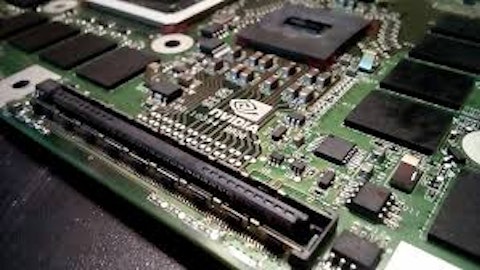8. Trimble Inc. (NASDAQ:TRMB)
Trimble looks like an old school industrial equipment company that is trying to pivot to a software subscription business. Last week Boston Dynamics and Trimble announced a strategic alliance to combine Boston Dynamics’ Spot robot platform “with Trimble’s data collection sensors and field control software to enable automation of repetitive tasks such as site scans, surveying and progress monitoring”. Trimble’s ultimate goal is to disrupt the construction market.
TRMB was in the portfolios of 26 hedge funds at the end of June, an increase of 6 over the previous 3 month period. Al Gore’s Generation Investment Management was the largest shareholder of this robotics company, with a stake worth $495 million reported as of the end of June. Trailing Generation Investment Management was Impax Asset Management with a stake valued at $350 million. D E Shaw, Arrowstreet Capital, and Citadel Investment Group were also very fond of the stock, becoming one of the largest hedge fund holders of the company. In terms of the portfolio weights assigned to each position Impax Asset Management allocated the biggest weight to Trimble Inc. (NASDAQ:TRMB), around 3.6% of its 13F portfolio.
7. Deere & Company (NYSE:DE)
Deere is another top 10 robotics stock pick from ARK Autonomous Technology & Robotics ETF (ARKQ). There were a total of 23 hedge funds with bullish Deere positions at the end of June. We have to tell you that not every active fund manager is bullish on this stock. Massif Capital disclosed in its Q1 investor letter that it is shorting Deere and said the following:
“John Deere continues to excel at setting and surpassing their own quarterly expectations. The market rewards them for doing so; their stock appreciated ~7% on the day they announced earnings, even as their underlying financials paint a rather bleak picture. Messaging from senior management focused on the stabilization of the U.S. agriculture industry. The passing of the USMCA and the Phase I trade deal last fall certainly put some life back into their sails, even if it’s not at all clear how accretive this is for the U.S. farmer, let along DE’s income statement. Compared to 2018, DE’s first quarter 2020 net sales (which concluded on January 31 and did not incorporate any of the COVID19 effects) fell 6%, led by their agriculture & turf division falling 4%, construction & forestry falling 10% all balanced out by their financial services division gaining 9%. Total operating profit for the firm fell 16% year-over-year, primarily driven by a sharp 59% drop in the operating profit from construction & forestry.
Deere’s headline acquisition of Wirtigen in 2018 seems to be causing more headwinds than tailwinds thus far. The firm’s 2020 outlook does not provide much relief. Prior to the knowledge that the pandemic would effectively press pause on economic activity for an unknown period of time, both their agriculture and construction divisions were expecting sales to contract 10-15%.”





